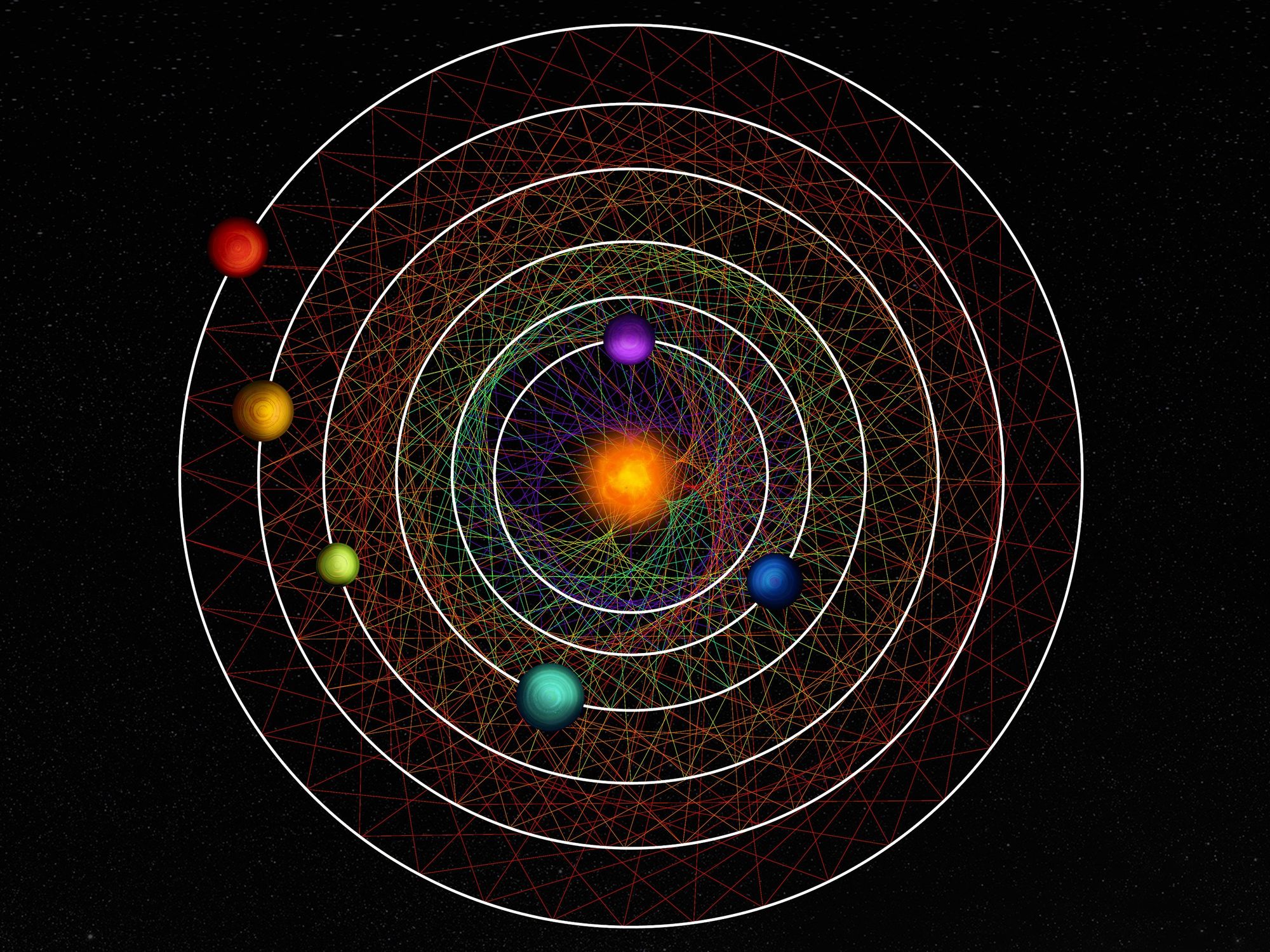
If you’re curious about astrology or just want to be more in tune with your bruja (witch) side, we bring you a few interesting facts to start your journey. Here 10 astrology facts that will blow your mind and they’re great conversation starters if you want to connect with other astrology enthusiasts:
Astrology is as ancient as it gets
 Photo by Josh Rangel on Unsplash
Photo by Josh Rangel on UnsplashAstrology dates back thousands of years, with the earliest evidence of it dating as far back as the 3rd millennium BCE. Astrology was even an academic discipline across Eurasia until the 17th century. It has evolved significantly since then, but its fundamental principles remain rooted in ancient wisdom. While it’s not a science, its history is fascinating, and the meaning we give it is rich. Remember that the next time a man tries to make you feel silly for liking astrology; he’s just close-minded.
Sun signs vs. Moon signs
 Photo by Nastya Dulhiier on Unsplash
Photo by Nastya Dulhiier on UnsplashWhen you’re just getting into astrology, the difference between your sun sign and your moon sign can seem complicated. It’s actually very simple! The sun sign is determined by the position of the sun at the time you were born. It represents your core identity, ego, and the essence of who you are. Your moon sign is determined by the position of the moon at the time of your birth and it represents your emotions, instincts, and subconscious mind. Together, they allow you to understand your astrological identity a bit better and get more insights out of your interpretations.
Being born between two signs might make you a “cusp”

While astrologers have different interpretations of “cusps”, it’s generally understood as someone who is born between two signs. It doesn’t necessarily mean that you’re a combination of the two signs, though. More often than not, people identify more with one sign than the other, so it’s a matter of assessing and figuring out the sign that speaks to you the most.
Mercury retrograde is not as bad as it may seem

Photo by RidingWithRobots on Flickr
Mercury retrograde is a phenomenon in which the planet Mercury appears to move backward in its orbit. In astrology, this period is often associated with chaos and communication issues, so it’s not advisable to make big life decisions during this time. However, it can be a positive time if you use it to slow down, reflect, reevaluate, repair, and do things like reorganize your space, revisit old places, etc.
The moon can influence your emotions
 Photo by Sanni Sahil on Unsplash
Photo by Sanni Sahil on UnsplashWhen the moon is full, do you notice feeling more sensitive? Especially when it comes to reminiscing about the past. Well, dating back to as early as 400 B.C., scholars attributed this kind of emotional shift to the moon's gravitational pull. The term "lunatic" itself originated from the belief that lunar phases affected mental states. So, maybe keep an eye on moon phases and see how they affect your mood.
Astrological compatibility is a thing

The belief in astrological compatibility is based on the idea that the positions and movements of the Sun, Moon, planets, and stars at the time of our birth can influence our personality and behavior. Based on that, astrologers have determined how compatible signs can be with each other. It’s not a hard rule, but you can find which signs you’re most compatible with and see how that aligns with your experience.
The significance of Saturn returns
 Photo by NASA on Unsplash
Photo by NASA on UnsplashSaturn returns occur approximately every 29.5 years when the planet Saturn completes its orbit around the Sun and returns to the same position it occupied at your birth. This period is often associated with significant life changes, challenges, and opportunities for growth. So, mark it on your calendar if you haven’t because it can be the perfect time for introspection and making a reassessment of your goals for the future.
The importance of transits and progressions

Illustration by Thibaut Roger
Astrology considers transits and progressions to interpret and understand the influence of celestial bodies. Transits look at the position of the planets in relation to your natal chart, while progressions consider the advancing positions of the planets. Transits show the external influences affecting your life, while progressions reveal your internal growth and development over time. Both are essential for understanding the dynamics of your life journey and providing insights.
Astrology has many branches

Astrology isn't just about Sun signs (your typical horoscope). There are many other branches to look into, including natal astrology (analyzing individual birth charts), horary astrology (to answer specific questions), electional astrology (for selecting auspicious times for events), and mundane astrology (which focuses on world events).
It’s not a science, but it’s not useless

While astrology has a dedicated following and has been relevant for millennia, it also has a lot of skeptics who dismiss it as a pseudoscience. Yes, astrology is not a science, but many people find value in it as a tool for self-awareness, personal growth, and understanding of themselves and their connection to the universe. Ultimately, it’s thought-provoking and fun, so there’s no harm in it. Plus, it can help you find your own form of spirituality!
- Mayan Astrology: What are Galactic Numbers? ›
- Embrace Your Inner Bruja: These Mujeres are Redefining and Leading Spiritual Wellness ›
- Intro to Mayan Astrology 101 ›














